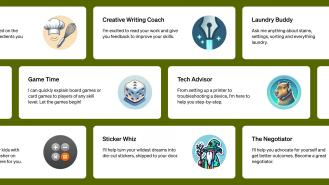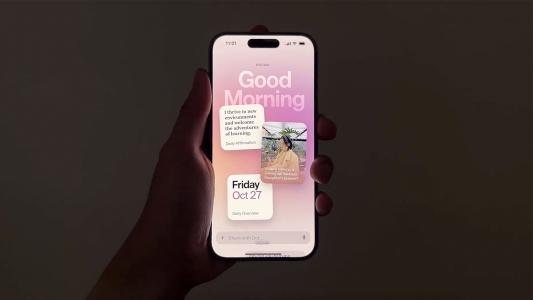Update, 01/10/24, 1:10 pm ET: OpenAI officially launched the GPT store on January 10 and is now rolling out access to ChatGPT Plus, Team, and Enterprise subscribers. The company also shared a list of featured GPTs in the store, including one built by AllTrails that provides personalized trail recommendations, and one by Canva that designs presentations, social posts, and logos.
Update, 01/04/24, 1:10 pm ET: On January 4, OpenAI contacted GPT builders to announce plans to launch the GPT Store “next week.”
OpenAI is making it easy for you to create and share customized versions of its popular ChatGPT — and if others like what you build, you can even earn some cash in the process.
The background: ChatGPT is a powerful large language model (LLM), which is a type of AI that can understand and respond to text prompts written in the same conversational language people use to talk to one another.
OpenAI trained ChatGPT on massive datasets pulled from the internet, which allows the AI to chat with authority (usually) about everything from microbiology to memes. It can even generate usable computer code, and answer questions based on pictures.
The limitations: For all those abilities, though, ChatGPT is still a one-size-fits-all tool — the only way to customize it is to tell it exactly how you want it to respond to your prompts every time you use it.
For example, if you wanted to use ChatGPT to revise emails so that they better align with your brand’s voice, you’d have to first tell it what that brand voice is (by feeding it a style guide, for example), and then paste your email along with instructions to revise it based on the guide.
“We’re excited to foster a vibrant ecosystem with the GPT Store.”
Sam Altman
If you close ChatGPT, it’s going to forget it ever saw that style guide, meaning you’ll have to repeat the process of training the chatbot on what you want every time you plan to tweak an email.
On top of that, the chatbot has an input limit of just 4,096 characters — something like 800 words, give or take a couple hundred — for any prompt you give it, so it could take several prompts to get it where you want to go.
Introducing GPTs: OpenAI has now introduced customized versions of ChatGPT that you can create, share, and potentially even monetize through a soon-to-be-launched GPT Store.
“You can make [GPTs] for yourself, just for your company’s internal use, or for everyone,” writes OpenAI. “Creating one is as easy as starting a conversation, giving it instructions and extra knowledge, and picking what it can do, like searching the web, making images, or analyzing data.”
The GPT Store: OpenAI has already begun rolling out the ability to create and share GPTs to some users, and it plans to launch the GPT Store before the end of November.
There, GPTs that meet the company’s policies will be made available to the ChatGPT community. Users will be able to search the store for helpful GPTs, and OpenAI plans to reward the creators of the most popular ones.
“Revenue sharing is important to us,” said OpenAI CEO Sam Altman, who announced GPTs and the GPT Store at the company’s DevDay on November 6. “We’re going to pay people who build the most useful and the most used GPTs a portion of our revenue.”
Looking ahead: Exactly how much creators can expect to make from their GPTs is TBD, but Altman says OpenAI plans to share more information soon.
“We’re excited to foster a vibrant ecosystem with the GPT Store,” he told the DevDay audience. “Just from what we’ve been building ourselves over the weekend, we’re confident there’s going to be a lot of great stuff.”
We’d love to hear from you! If you have a comment about this article or if you have a tip for a future Freethink story, please email us at [email protected].





